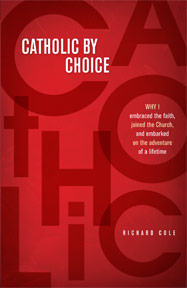For several years now, I have been thinking about the short story “The Bear” by William Faulkner.
In simple terms, “The Bear” is set in Mississippi in the 1880s and follows a young boy, Isaac McCaslin, as he grows into manhood. Every year he spends two weeks at a hunting camp in a 100 square-mile stand of virgin forest. He is taught hunting and woodsmanship by old Sam Fathers, “son of a slave and a Chickasaw chief,” who also teaches him a respect, even reverence, for the woods and the creatures in it.
In the camp, Isaac listens to tales about Old Ben, a legendary black bear who has lived in the woods for decades. Isaac knows that he is not the hunter who will finally bring down the bear. He just wants to witness, to catch a glimpse of this mythic animal. Old Ben becomes an obsession with him. The bear “ran in his knowledge before he ever saw it. It loomed and towered in his dreams before he even saw the unaxed woods.”
Faulkner invests the story with obvious and powerful spiritual overtones, at one point even calling Isaac’s instruction by Fathers the boy’s “novitiate.” Certainly the story is about innocence and a fall from grace, the woods as a “doomed wilderness where edges were being constantly … gnawed at by men . . .”
To be honest, I think it would be a stretch to see the story as any kind of Christian allegory. Faulkner probably had other things on his mind—the old South, humanity and nature, a fall from primeval innocence, the succession of races that oversaw the mystery of a forest they ultimately helped to destroy.
At the same time, I keep coming back to the part when Isaac turns to Fathers after having searched through the woods every year but failing repeatedly to even find the tracks of Old Ben. “You ain’t looked right yet,” Fathers tells him. “It’s the gun,” adding, “You will have to choose.”
So Isaac leaves his rifle back at the hunting camp. He enters the wood with only his watch, a compass, and a walking stick. By noon, deeper in the forest than he has ever been before, he has still seen nothing of the bear, not even tracks. Then comes the moment when he makes his final choice:
“He stood for a moment—a child, alien and lost in the green and soaring gloom of the markless wilderness. Then he relinquished completely to it. It was the watch and the compass. He was still tainted. He removed the linked chain of the one and the lopped thong of the other from his overalls and hung them on a bush and leaned the stick beside them and entered it.”
Isaac becomes lost, “his heart beating a little more rapidly but strong and steady enough,” and continues forward. Fathers has told him that the bear has been watching him from the shadows, but only when the young man is completely lost, only when he has “relinquished”—the term used by Faulkner—everything that he thinks he needs as a hunter, only then does he finally see Old Ben. Ironically, this is only after he has followed the bear’s tracks back to the very place where he had left his possessions.
So what is the point of all this?
As I said, I do not think Old Ben is any specifically Christian symbol, but as someone of faith, I see the story as a reminder of what we also have to “relinquish” on our spiritual journeys.
We all have to go empty handed into our own deep forest. We have to leave behind our personal weapons, whatever they might be, along with all the ways we orient ourselves, connect to the world, and control our lives. We have to get lost, sometimes over and over, and go where God, not our expectations, lead us.
That is why we often hand over our watches and cell phones, sometimes even our wallets, at the beginning of spiritual retreats. Yes, it can be disorienting not to carry those items, and that is the point—to leave the world behind so we can better focus on what is larger than ourselves.
Getting lost has its advantages. Behavioral scientists have pointed out that our attention is greatest when we are uncertain about our environment or impending events. Thomas Merton embraces this uncertainty in his well-known prayer:
My Lord God, I have no idea where I am going.
I do not see the road ahead of me.
I cannot know for certain where it will end.
Dante writes at the beginning of the Divina Commedia:
In the middle of the road of our life,
I came to myself in a dark wood
where the straight way was lost.
Of course, we need a path to God. Dante had Virgil to guide him. Our Church gives us a wealth of directions, a 2,000 year-old tradition that has guided millions. But this tradition itself contains the reminder that we are all pilgrims who can take nothing for granted. The Israelites wandered through the desert. The Apostles were always lost, and when they armed themselves or thought they knew their destination, Christ would take away their weapons or internal compasses and turn them around, upend their assumptions, until they had lost their bearings again. The point is to follow the Lord, one step at a time. The path to God is not God.
With that in mind, we can ask ourselves a few questions. When was the last time we were really lost? Do we enter into deep prayer with an eye on the clock? Do we try to find God while still armed with grievances, worry or even our best intentions? Do we carry a compass that keeps us secure, that gives us a sense of crossing all the right spiritual milestones, of “making progress”? If so, we might be keeping God at a distance.
Richard Rohr has written, “The last experience of God is frequently the greatest obstacle to the next experience of God. We make an absolute out of it and use it to strengthen our ego, to self-aggrandize and self-congratulate. Then, of course, nothing more happens.”
Only when we lose our way—that is, the way we have personally cut for ourselves—can we find the true one. So we can say to ourselves: Get lost. God only knows where we really are, and yes, at the proper hour and place, He will always appear.

